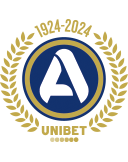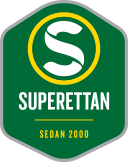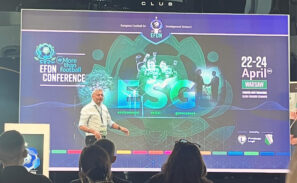From June 6th to 9th, elections for the European Parliament are held in Brussels. In connection with this, the European leagues, through the interest organization European Leagues, present a manifesto emphasizing the most important issues for international football between 2024-2029.
“It is very important that we engage in issues at the EU level. There are many current issues on the table that affect us and football in Europe to a high degree,” says Simon Åström, chairman of the Swedish Professional Football Leagues.
European Leagues is an interest organization for football leagues in Europe, where Allsvenskan and Superettan are members through the Swedish Professional Football Leagues. In the manifesto, the following prioritized issues for the mandate period 2024-2029 can be read:
- Promote respect for the entire football pyramid and ensure that decisions are not only made at the top of the pyramid to benefit only a few clubs.
- Protect the autonomy of sports within the EU while working to improve the feasibility of a more transparent, objective, and non-discriminatory set of rules to govern our sport.
- Adopt legislation to combat illegal piracy of content online following the EU Commission’s recommendation from 2023.
- Continue to support the freedom of member leagues to license our content on a territorial basis while maintaining the current system of reasoned geoblocking;
- Establish statutory criteria for sports betting license holders in Europe to only use official data sources to protect the integrity and intellectual property rights of sports;
- Collaborate with the newly established AML authority to work together on implementing the new rules for combating money laundering applied to football clubs;
- Resist demands for the introduction of fees for telecommunications networks, among others.
“Football affects and exists for so many in our society, and it is important for us to have a sport that is for everyone and that no one unlawfully profits from our operations. European Leagues represents us well at the European level, and we work closely together with other leagues on EU matters,” says Simon Åström.
At the recent EU Sports Forum held in Liege, Belgium, in mid-April, the focus was on governance and scheduling/calendar issues.
European Leagues summarizes the meeting as follows:
“The recently issued judgment from the ECJ regarding the Super League case calls for a more transparent, objective, and non-discriminatory set of rules to govern professional football. All football stakeholders must be accountable for how they conduct processes and make decisions, especially when these decisions—such as those concerning calendar issues—affect the entire ecosystem and have a significant impact on the bottom of the pyramid that forms the foundation of the entire football industry. It is time to evolve from an international football governance model based on consultation to a more inclusive model of structured co-decision-making that can consider the legitimate interests of all stakeholders in the game.“















